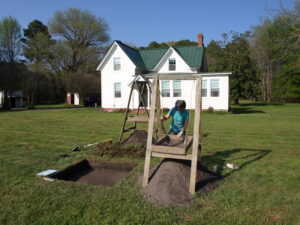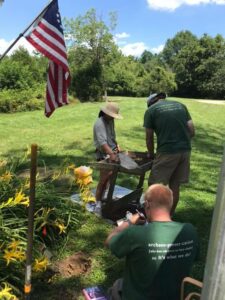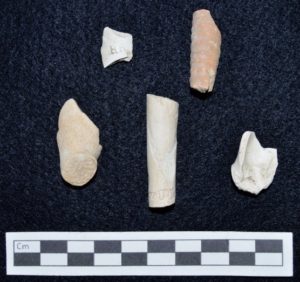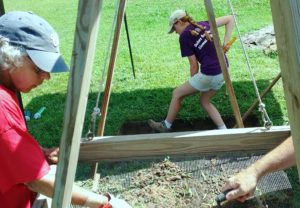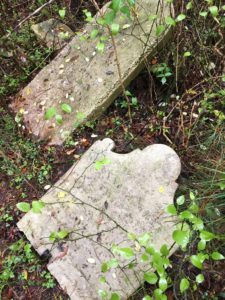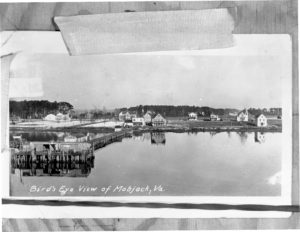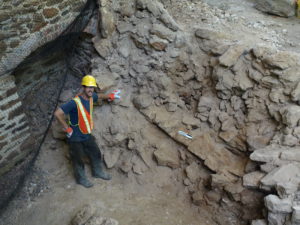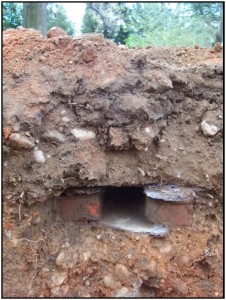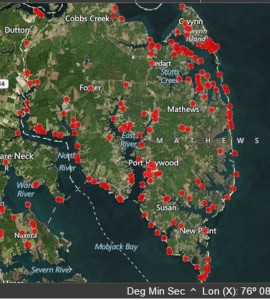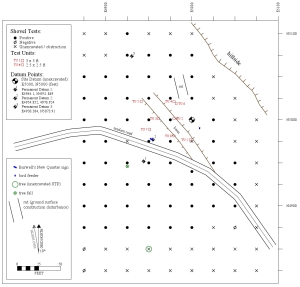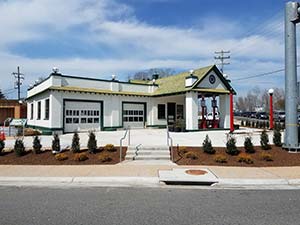Blog post written by Katie Brauckmann, staff archaeologist, Fairfield Foundation. In 2018 , I wrote this blog about our ongoing work at the Hall Site (44MT0173) in Mathews County. Three […]
Three Weeks as a Fairfield Intern: Rachel Shin, 2019
Guest blog by summer intern Rachel Shin, a high-school student from Harrisburg, Pennsylvania. Week 1:On the first day of my internship, I got to dive into field work right off […]
Anything But Ordinary
Twenty years ago, two young archaeology students, David Brown and Thane Harpole, surveyed a farmstead site located in Gloucester County, Virginia, dating to the late 17th to early 18th centuries. […]
The Hall Site: A “Hallmark” of Mathews County
Guest Blog author Katie Brauckmann has worked with the Fairfield Foundation/DATA Investigations for three years, first as a volunteer and intern, and now as a part-time employee. Katie is a […]
Two New Fairfield Preservation Initiatives: Documenting and Preserving Sites Across the Middle Peninsula
The Fairfield Foundation has long supported preservation efforts on the Middle Peninsula and surrounding areas through public archaeology, historical research, oral histories and preservation advocacy. As our Center for Archaeology, […]
Mobjack: Starfish, Pickled Herring and Hidden Stories of Mathews County
One of the best parts of our work is the idea that you can discover something new and exciting every day. Most of you see this excitement from our archaeological excavations, and […]
Extraction and Excavation: Archaeology of a Collapsed House Ruin
The house is magnificent. It is everything that you would want in an 18th-century Virginia manor- symmetry, mass, rhythm- and it sits boldly on an elevated landscape surrounded by extensive cropland rimmed […]
A Look at Colonial Drains
Archaeologists are always finding remarkable features that provide new insight into the colonial world. One type of feature that shows up with some regularity, yet receives very little attention, is […]
Archaeology in Mathews County: What do we know? Where do we go from here?
“You can’t set foot in Mathews County without tripping over a piece of history.” Many of you have heard this before, and you’d be hard pressed to argue against the sentiment. […]
New Challenges and New Discoveries at New Quarter Park
Every research excavation has that moment when you must decide whether to keep digging, or focus your energies on the inside work- whether it’s the artifact washing, cataloging, and report writing that […]
